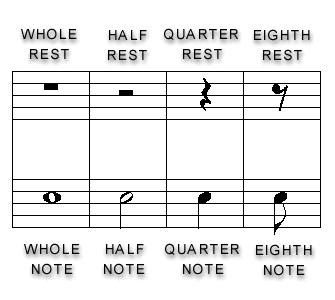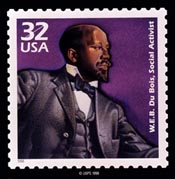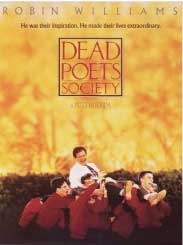 Employees today are famished for encouragement and positive feedback, but few feel they receive it in abundance. To this, some say, “For goodness sake! Are we all getting soft in the middle? Do we always need a steady drip of ‘good boy’ or ‘good girl’ to feel professionally worthy and validated? Grow up!” While we don’t need a steady stream of praise to perform well, who wouldn’t feel better, prouder, more appreciated, after hearing well deserved praise from management, a respected colleague or client/customer?
Employees today are famished for encouragement and positive feedback, but few feel they receive it in abundance. To this, some say, “For goodness sake! Are we all getting soft in the middle? Do we always need a steady drip of ‘good boy’ or ‘good girl’ to feel professionally worthy and validated? Grow up!” While we don’t need a steady stream of praise to perform well, who wouldn’t feel better, prouder, more appreciated, after hearing well deserved praise from management, a respected colleague or client/customer?
Ever since my earliest formal studies in psychology, I’ve read of psychological principles that prove that positive reinforcement increases the probability that a desired behaviour will recur. Without periodic positive feedback employees may easily become unhappy, unmotivated and unproductive; it’s difficult to know the value of your contribution without feedback. Positive reinforcement (rather than tyranny, insults, sarcasm, put downs, punishment or mere ambivalence) is more effective at inspiring quality performance and work ethic. If positive feedback is such a powerful technique for leading and inspiring employees, why is it that only a minority of managers go beyond the lip service of this concept (at least according to the employees to whom they report)?
“Carpe Diem” (Seize the Day) is the Latin expression that gained renewed cache thanks to Director Peter Weir’s compelling and thought-provoking modern-day classic movie, Dead Poets Society, in which Robin Williams portrayed an impassioned English professor (Mr. Keating), who taught a bunch of teenaged boys to make their lives “extraordinary.” “Carpe Diem/Seize the Day” yourself! Seize any day this balance of month and year to express praise and appreciation for those who make you look good, make your job easier, contribute to the continued success of your organization and serve your clients well. As well as formal events of acknowledgment for work well done, share spontaneous and unscheduled thanks and praise with staff. Do this, of course, if you are in a position of official leadership (for sure), but also remember that it’s “lonely at the top… and your “top guys” could probably use a bit of thanks and praise, from time to time, too. What better time than these last two days leading into Thanksgiving weekend?
We often think of praise as a “top down” activity, but it doesn’t have to be. I recently spoke at a lovely staff appreciation/awards event where a wide variety of well-deserving employees received accolades and awards for jobs well done in a particularly challenging year. A fine and classy event, indeed, which went the extra mile (to my mind), when the employees turned around and presented the top leader of their organization with special acknowledgement and thanks for his ability to rally work-weary staff, coping with unprecedented crisis, through some rough days in the year. Although I was the guest keynote speaker at this event (and therefore, by definition, an outsider), even I could feel the sincerity of the audience as they applauded their leader at length; and, what’s more, I could see the humble surprise and honour of the leader, who didn’t have a clue that this praise from his staff was coming his way! Everyone can stand a bit more praise. Everyone.
Praise is a renewable resource. Whether or not you are in a position of official leadership (but, especially if you are), catch people doing things right… and take the time to tell them so! These days leading into the last long weekend of the year may be the perfect time. So maybe now (while there’s still several weeks left before year’s end) is a good time to feed some of those ravenous employees with a little more praise for work well done… while you’ve got the time, while the weather’s still warm and you’re in the Thanksgiving mood.
-
- Next time you’re in a team meeting and another makes an excellent point, effort or contribution, take the time to acknowledge that individual by declaring something like, “Good point!”; “I’m glad you brought that up!”; “I really appreciate that!” “Good job!”; “Well done!” or the good old fashion and still much appreciated sincere and succinct “Thank you!” And, if one of your staff or colleagues is the real magic behind an idea, concept or success of a project, don’t steal their thunder. Give credit where the credit is authentically due.
- Dish out the positive feedback yourself, for sure, and remember to encourage others to do the same; make sure that your staff is formally and informally trained in these same communication skill competencies, to apply to their staff, colleagues and even external clients, where appropriate.
- Target praise to specific observations, and be quick to respond. Have an “eye” open and an “ear” cocked. Timely praise often has more reward and satisfaction for the receiver, than delayed; specific praise, with comments about the details that inspire you to speak up in the first place, is more effective than merely saying (at some point down the road), “You’re doing terrific work.”
- Make sure that the expression of praise fits the behaviour or action being praised. Public acknowledgment may be more valued than a financial bonus (as, for example, numerous human resources studies have demonstrated that cash is not the biggest employee motivator).
- Ensure that positive feedback is part of performance reviews. Praise in these private ways, and praise in public ways, as well. A good rule of thumb is to praise in public and reprimand in private. This should be a “no brainer,” yet so many employees share stories about their embarrassment (and even humiliation) at being reprimanded publically. I can still vividly recall my own horror at an unfounded public reprimand from my boss, circa 1986! One would like to think times have changed in 30 years, but surprisingly there are still too many stories of this kind out there. It’s gobsmacking to me to hear that too many employees are still being literally yelled at by their “bosses!” And many others can share stories of their discomfort at witnessing a manager “strip-tearing” another. The damage done by the public reprimanders’ methods of expressing displeasure is often greater than the reason for the harsh words in the first place.
- Praise with purpose and from the heart when the time is right, rather than in some formulaic, predictable and expected interval, e.g., at the end of each team meeting. The purest intent of praise is not to get the other person to like you or think you’re nice. It’s meant to inspire higher morale and increased productivity and show your appreciation–it’s not intended to be merely flattery. There’s a difference. Remember as well that praise must come from the heart. Most everyone, whether adult or child, whether or not they’ve ever attended any special workshops on communication skills, can spot phony praise. Behaviourists have also shown that varying the interval of reinforcement is more effective than a predictable time set interval. For example, praising another periodically, on an irregular basis, is more effective than praising every time they do something well. This means, do praise at the time of formal performance reviews, but remember to “mix it up” with unscheduled praise, too.

- Praise the praiser once in a while. If you “catch” a praiser praising another, tell the praiser (when appropriate to do so) how you admired their style, words, eloquence that they demonstrated at the time, etc. Remember, as well, to catch them doing things right. Even the cheerleaders could use a little “rah rah” once in a while. It’s not “buttering up the boss”; beyond the workplace hierarchy and org charts, this “boss” may be a peer of your own generation. You’re the same. Peers. Why shouldn’t you give praise to a peer, when you’re inspired to do so, regardless of the position they hold? Use the same rules as above for your praise of a praiser, e.g., come from the heart, be specific, timely, etc. One caveat… consider sharing your spontaneous and personal praise of the praiser in private rather than in public, to reduce embarrassment or the misinterpretation of your intent by others.
- Have fun with your staff/colleagues once in awhile (the unscheduled, spontaneous kind and also the structured and organized kind which can be folded in to staff planning sessions, off-site meetings and annual professional development days). My dear mum used to say, “All work and no play makes Jack a dull and unproductive boy.” The same is true of staff. “Playing” and having some fun together isn’t “goofing off” at the stakeholders’ or publics’ expense; it’s intermittent refuelling for the hard work ahead. My piano teacher used to say, “Rests are part of the music.” Too many of us shortchange our “rests.” Stop that! Sponsoring periodic staff events which fold in “play” with serious work is yet another way of praising employees and giving thanks.
You know the old expression, “You get what you pay for?” Well, it’s the same with leaders and their staff. Leaders who think that employees should feel that a pay cheque and benefits is praise enough, will get exactly (and only) that…. employees who work for a pay cheque and benefits–and no more. If you want more, give more. Praise. Consider the words of Tom Peters and Robert Waterman, Jr., from their classic bestseller In Search of Excellence:
“Treat people as partners; treat them with dignity; treat them with respect.
If you want productivity and the rewards that go with it, you must treat your workers as your most important asset.”
And consider, too, Walt Disney’s pearls of wisdom:
“You can dream, create, design and build the most wonderful place in the world. But it requires people to make that dream a reality.”
You can dream, create, design and build the most wonderful workplace environment in the world, but it requires (amongst other things) praised and appreciated employees to make that dream a reality.
Praise is yeast for your Thanksgiving bread. Let it raise yourself and others!
Happy Thanksgiving Weekend to you and yours!

“Give us thankful hearts…in this the season of Thy Thanksgiving.
May we be thankful for health and strength, for sun and rain and peace.
Let us seize the day and the opportunity and strive for that greatness of spirit that measures life not by its disappointments but by its possibilities, and let us ever remember that true gratitude and appreciation shows itself neither in independence nor satisfaction but passes the gift joyfully on in a larger and better form. ”
E. B. Du Bois,
from the book “A Grateful Heart:
Daily Blessings for the Evening Meal from Buddha to the Beatles”,
Conari Press, Berkeley, CA, 1994, page 51.












